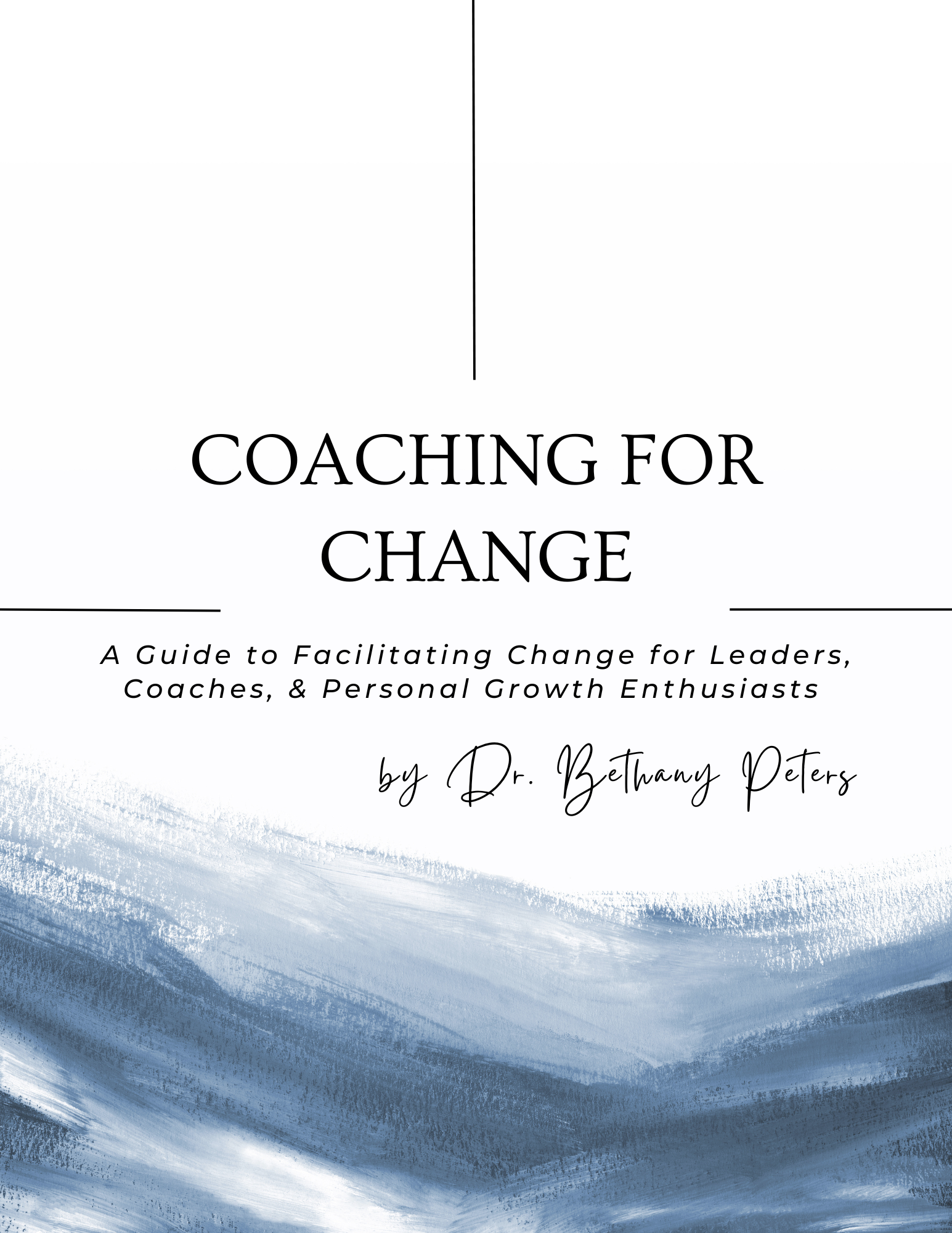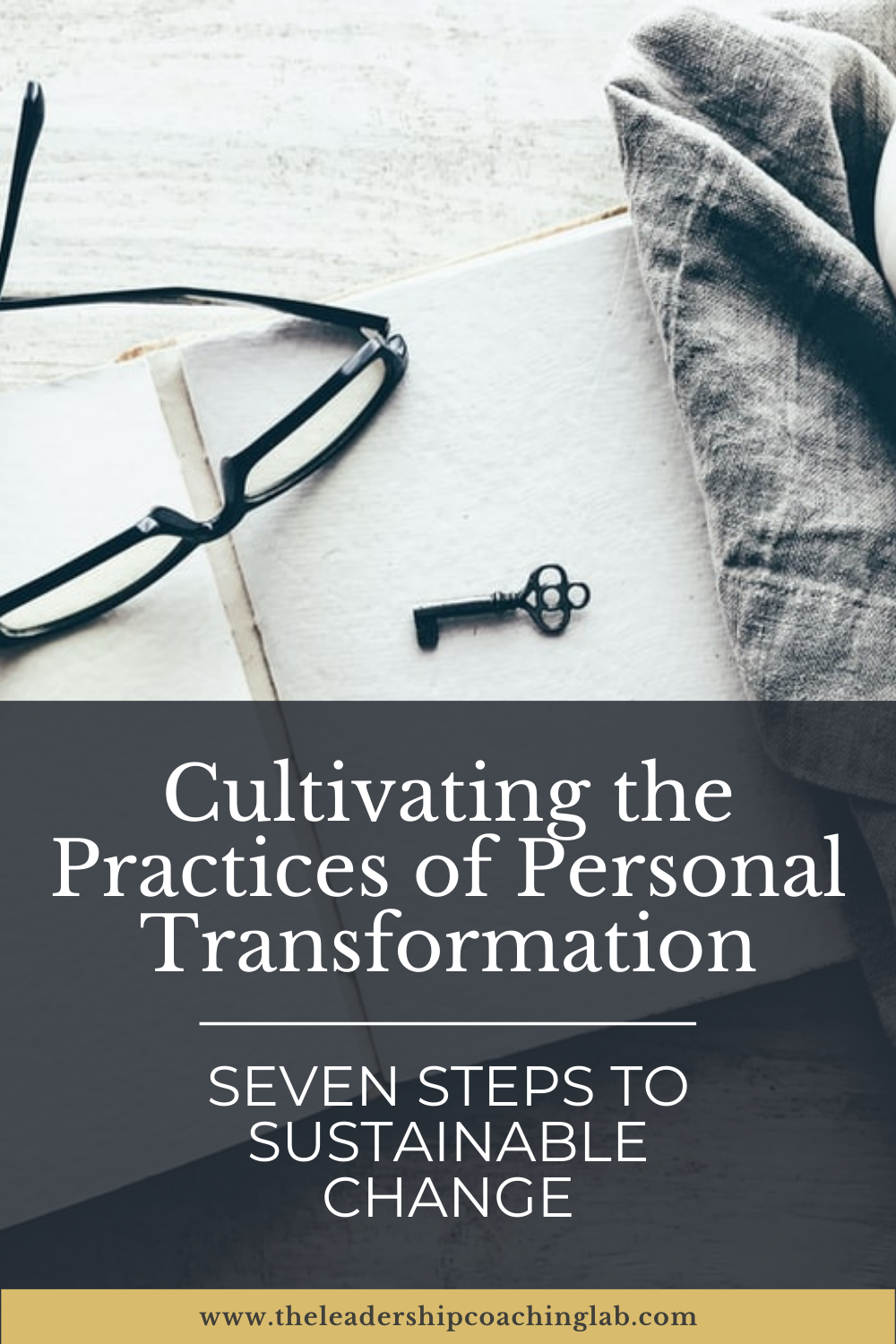Clarify Your Growth Goals
What are your priority areas for growth?
I usually know when I need to grow or change in a specific area. The signs are typically clear: I’m continually stressed out, or making someone else stressed out. Or, I am deeply dissatisfied, frustrated, or not seeing progress. For me, recognizing the need for change is the easy part. The harder part is to get really clear about exactly what my specific growth gaps are.
How do you get clarity about the gaps between where you are now and where you want to be?
Deepen Your Self-Awareness
Recognizing our gaps for growth requires a foundational level of self-awareness and the ability to get specific about what is out of alignment:
In what areas are you living in alignment with your vision (personally or professionally)?
What areas are out of alignment, and exactly what types of gaps are you facing?
These questions can be explored through a commitment to continually build our self-awareness. Although it is difficult to measure, increasing accuracy in our self-awareness represents an area of ongoing development for leaders at every level.
In her recent research, Tasha Eurich found that although the vast majority of people consider themselves to be self-aware, only a small percentage truly possess accurate self-understanding. And the impact of lacking self-awareness can leave others around you feeling stressed out, disengaged, and suffering in performance. A common conundrum is that leaders with low self-awareness do not often recognize these negative effects, which can intensify the toxic circumstances for everyone else.
“Unless we are clear about who we truly are, what we value, what difference we seek to make and how the world sees us and our work, we cannot be effective leaders. ”
So how can leaders increase self-awareness? Eurich proposes seven categories of internal awareness, including 1) core values, 2) passions, 3) future goals, 4) environmental fit, 5) patterns of thoughts, emotions, and behaviors, 6) reactions, and 7) impact on others. Finding clarity in these areas requires a commitment of time and self-reflection, but offers greater fulfillment and effectiveness in reaching our potential.
Which of these questions brings new insight on specific ways you need to grow?
What are your core values? In which areas of your life are your values inhibited or in conflict?
What are your most important passions? In what ways are you investing in those passions?
What are your future goals? What steps are you taking towards those goals?
Within your current work or life season, how fulfilling is your “fit”? Are you in a place that supports your personality, strengths, and values?
How do your thoughts and emotions contribute to healthy (or unhealthy) behaviors?
How do you manage your reactions to life circumstances or to other people?
What impact are you having on others? What impact would you like to have?
Seek Feedback
Although self-reflection can offer important revelation, it is truly only giving us one side of the story of who we are. In her work, Eurich describes the importance of external self-awareness, which is how others perceive and experience us. Steve Moore, president of Nexleader, asks these two powerful questions about our external self-awareness:
What is it like on the other side of me?
What do I want it to be like on the other side of me?
To get clearer on these questions, one strategy is to coordinate an informal 360 assessment with a few people whom you trust (colleagues, family, friends, etc.). Asking others for specific feedback can provide insight on the areas in which we need to grow.
Seeking this feedback requires us to be vulnerable and open to hearing the truth. It also means that we need individuals whom we can trust to be honest with us. As Parker Palmer notes, “honest, open questions are counter-cultural.” You will need to be strategic and persistent as you build a community of individuals who are willing to provide an authentic assessment of your strengths and limitations.
What goals will help you to achieve your vision?
Define your Goals
As you continually grow in self-awareness, specific growth points in relation to your vision for change will emerge. And as you gain clarity about your priority growth gaps, translate them into growth goals that align with your vision for change. While vision is our bigger picture dream for the future, goals are smaller, specific intentions that help us realize our vision.
The next step is to write your goals down and share them with someone in your community. Don’t skip the writing part- it can make a big difference! Neuroscience research demonstrates that writing down and picturing your goals in the most vivid terms possible will actually help you to remember and be more likely to achieve those goals.
Go Deeper with the Self-Awareness Assessment
If you want to dig deeper into a journey of self-discovery, download our custom-designed self-awareness assessment. This comprehensive guide includes 20 pages of content, including a self-awareness rating scale, reflective prompts, guidelines to conduct an informal 360 review, questions to ask in your 360, and inspiring quotes to keep you motivated in the process.
“People who very vividly describe or picture their goals are anywhere from 1.2 to 1.4 times more likely to successfully accomplish their goals than people who don’t.”
Get the Complete Toolkit to Inspire Growth & Change
Get my free 60-page ebook featuring my 8-step process for growth and 80 powerful questions for coaching or reflection - designed for leaders, coaches, & personal growth enthusiasts.
You'll also join 2,000+ professionals who receive The Coaching Mindset, my newsletter for practical tips to inspire intentional growth and tools to take a coach approach.
References
Eurich, T. (2017). Insight: the surprising truth about how others see us, how we see ourselves, and why the answers matter more than we think. Currency.
Eurich, T. (2018). What self-awareness really is (and how to cultivate it). Harvard Business Review.






